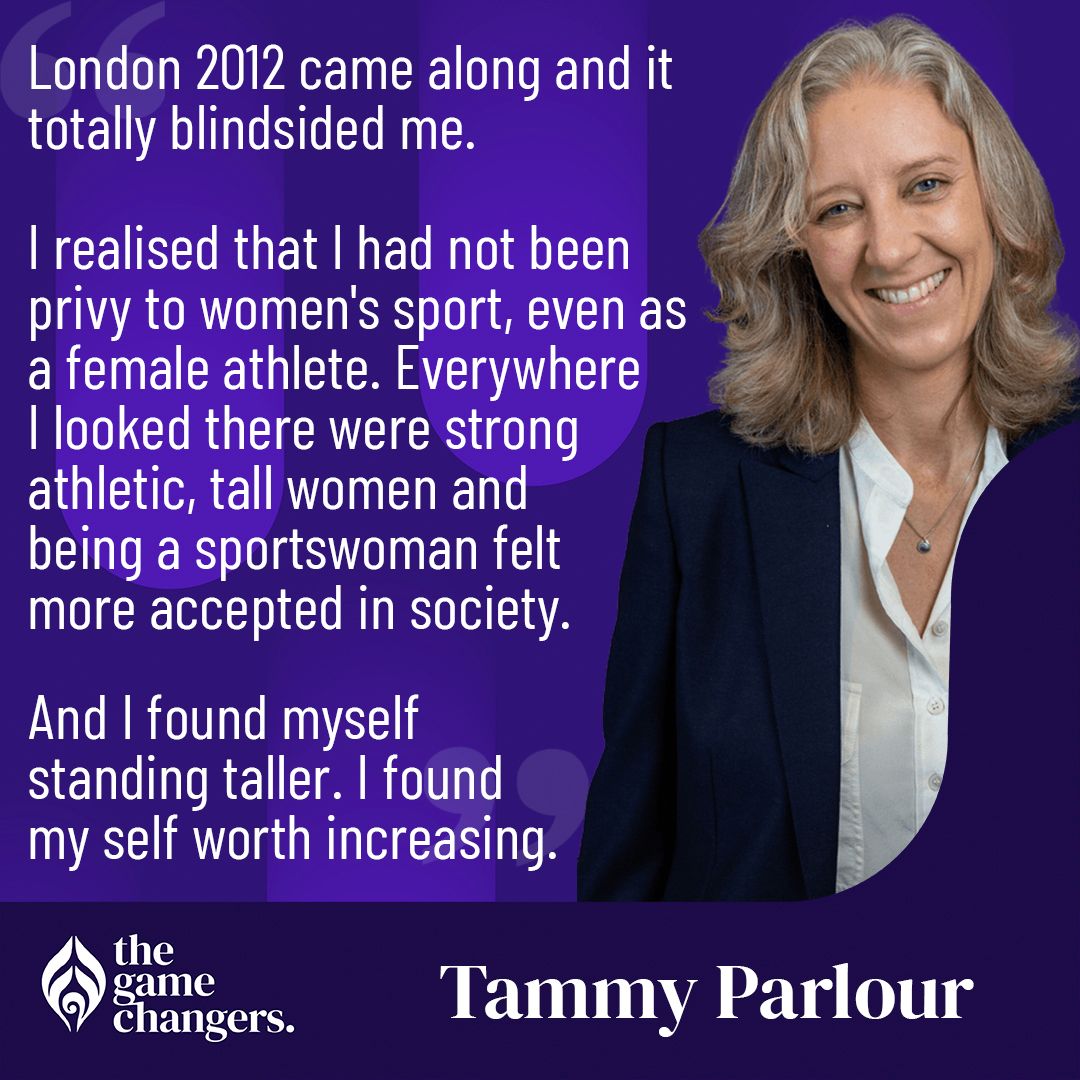Tammy Parlour, the co-founder and chief executive of the Women’s Sport Trust, was the latest guest on the Game changers podcast. Away from her role as CEO, Parlour is a master in the Korean martial art of Hapkido, having practised the discipline for 40 years. As a fifth-level black belt –– Parlour is one of the few people in the world who are at “Master level†and still coaches the form of self-defence regularly. Speaking to Sue Anstiss, Parlour explained why she finds being a teacher of Hapkido such a “privilege†and an honour. “I suppose for me, we are all incredible human beings, but there are so many barriers that stop us from actually being as incredible as we could be,†she stressed. “I see my role as a Hapkido Master, or martial arts instructor as enabling people to be the best version of themselves. So it’s a privilege to be part of that. It's definitely a wonderful thing.â€Helping women fulfil their potential is also one of the principal goals of the Women’s Sport Trust –– an organisation that is celebrating its 10th anniversary this year. Parlour says she “never envisaged†what the Trust has become and how much they’ve managed to achieve. It was the London 2012 Olympics which sparked the idea in the first place. Indeed, those Games were a memorable time for British sportswomen. Jessica Ennis-Hill’s heptathlon gold, Nicola Adams’ boxing heroics and Jade Jones’ inspiring taekwondo performance were just a few of the success stories to emerge.  “London 2012 came along and it totally blindsided me,†Parlour revealed. “I realised that I had not been privy to women's sport, even as a female athlete. I hadn't seen other female athletes like me, and everywhere there were strong, athletic, tall women, and being a sportswoman felt more accepted in society.
“London 2012 came along and it totally blindsided me,†Parlour revealed. “I realised that I had not been privy to women's sport, even as a female athlete. I hadn't seen other female athletes like me, and everywhere there were strong, athletic, tall women, and being a sportswoman felt more accepted in society.
I found myself standing taller. I found my self worth increasing. And I suddenly realised that I hadn't been seeing these things.
For Parlour, it was a case of being in the “right place at the right time.†People suddenly had an appetite for women’s sport and this helped get people on board initially. The Trust started out as a “grant-giving†body –– inspired by stories of female athletes who were struggling financially.
“There was one story, in particular, of someone having a flat tyre, who didn't have the money to get the tyre fixed. And I thought, ‘well, I've got £10 and if I can find 10 other people, then we've got a hundred quid and we can buy her a new tyre!’
“That was the sort of motivation behind it — recognising that it had changed me inside, that it had motivated me. It made me think and feel more confident and have greater self-worth as a sportswoman. Realising that I could do something practical to stay involved and to help.
“So the WST [Women’s Sport Trust] originally started as a grant-giving body, designed to help sportswomen in whatever way they needed. It's changed a lot since then.â€
Despite a period of offering grants to sportswomen, Parlour and the rest of the team realised this wasn’t making a difference to the bigger picture and so a change in approach was necessary.
“We talked among the board about where our strengths and weaknesses were — where the gaps were within the landscape and our focus and our interest was more around role models. So we started to focus on elite athletes.
“So we ran something called the ‘Be A Game Changer’ awards for about four years, which was all about trying to celebrate what was happening out there. And not just to celebrate it, but also to use those events as a tool in order to stimulate different sectors and get people to think about women's sport differently.â€
Fast forward to now and the Trust runs a campaign called “Unlocked.†The aim, as Parlour outlined on the podcast, is to pull together “30 to 40 female athletes,†who are all operating at an incredible level.
“We’re talking world champions, Olympians, that sort of elite level,†she explained. “It brings together this diverse group and we basically give them the space to think about what they care about.
“And then we help them make the steps towards that ambition. Often, what's achieved goes way beyond what you could ever imagine. So the Unlocked group pulls together this amazing group of women and they’re having very candid conversations about their struggles.
“We get that delivered by leaders within the industry and then we match them with –– we call them activators, but sort of like a mentoring relationship. So we match them with industry leaders that will open doors for them.
“We’ve also got another program we're putting them through to stimulate their thinking on things. We start to get an idea about who they are and we start to run webinars with them, for whatever it is they need –– be that social media training, understanding the landscape, understanding racism in sport. Whatever it is that's appropriate.â€
Asked what’s so unique about the Unlocked campaign, Parlour pointed towards the organisation’s ability to create meaningful relationships.
“I think the success of Unlocked is about building relationships with them [the athletes] and with their activators and mentors as well. Anyone could run hangouts or webinars but creating a relationship –– that really matters –– that is really about trying to enable someone to fulfil their potential That's where the magic happens.â€
Despite the success of the Trust, Parlour highlighted that the work is not finished yet and that more can still be done to accelerate change in women’s sport.
“​​Go and watch it [women’s sport], celebrate it, read about it and then I suppose, more broadly in whatever sphere you are in, notice if it's absent,†she exemplified.
“If you are in a meeting, if you are putting a panel together, if you are doing anything at all, just notice if there are women there or not –– notice if everybody in the room is white or not, and start pointing it out. What can we do? How can we change? Just notice what's happening.â€





















